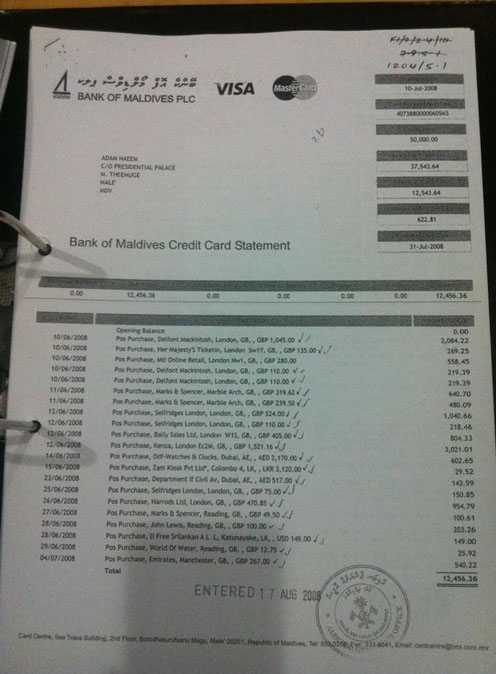Maldives tourism authorities remain confident the country will meet its ambition to welcome one million visitors to the country during 2012 despite ongoing “political turmoil” in the Indian Ocean over the last year.
The country plans over the next 12 months to hold a number of celebrations to commemorate 40 years since its travel industry was founded.
Minister of Tourism, Arts and Culture Ahmed Adheeb has told media in a press conference on Monday that should the Maldives achieve its aims of attracting one million visitors to the country during 2012, it could be effectively seen as being equivalent to welcoming two million arrivals due to the challenges of overcoming the “political turmoil” following February’s controversial transfer of power.
“We are closing in on that target with a lot of challenges. We are working with major obstacles due to the present crisis in the country,” Adheeb was quoted as saying.
The comments were made as former President Mohamed Nasheed, who alleges he was forced to resign from office on February 7 this year under “duress”, pleaded for tourists to “be more aware” of the political problems facing the Maldives.
“Tourists should be more aware of what is going on here. They may think they are remote from Male’ [the capital] but many of the staff are from here,” Nasheed told the UK-based Guardian newspaper this week.
The vast majority of tourists coming to the Maldives stay at its secluded island resorts that are classed as uninhabited, therefore making them exempt from local laws that outlaw the sale and consumption of alcohol and pork products, as well as openly practising any faith other than Sunni Islam. This resort model also keeps most tourists away from the partisan politics of the country, as well as the unrest that occurred in the capital of Male’ and other islands earlier this year.
Nasheed had previously called for a tourism boycott of the Maldives, as both himself and his supporters continue to question the legitimacy of the government of President Dr Mohamed Waheeed Hassan, his former vice president.
However, these calls were soon dropped by Nasheed and supporters of the now opposition Maldivian Democratic Party (MDP). The party are still pressing for early elections this year, despite a Commonwealth-backed Commission of National Inquiry (CNI) concluding the transfer of power in February was constitutional.
Despite fears about the impact of political uncertainty, Deputy Tourism Minister Mohamed Maleeh Jamal claimed back in September “the hard days” were over for the Maldives tourism industry following the release of the CNI’s findings.
The MDP has itself accepted some of the recommendations of the CNI report relating to judicial reform and holding security officials accountable, despite maintaining “concerns” over how the report was compiled and the potential “comical” implications of its conclusions.
Accepting the challenges faced by the tourism industry, Adheeb claimed that the entire industry was united in seeking to boost the prospects for tourism in the Maldives.
“The industry is driven by itself. This industry is mature enough to continue without any government interference. The difference between the former government and us is we won’t micro manage the industry. We are facilitating the process within the contours of the laws and regulations,” he told local media.
Amidst these claims, the Maldives last Thursday (October 18) picked up a number of accolades at the World Travel Awards (WTA) in Singapore that Adheeb claimed highlighted the strength of the country compared to other Indian Ocean destinations.
“This shows that Maldives is a stronger tourist destination than other Indian Ocean island nations such as Seychelles, Mauritius or Madagascar,” he was quoted as telling Sun Online.
The accolades picked up by the Maldives at this year’s WTA included awards for being the leading destination in the Indian Ocean for cruise and honeymoon holidays. Also honoured was Ibrahim Nasir International Airport (INIA) – presently at the centre of legal and political wrangling – which took the prize for leading regional airport.
Over half way
As the Maldives also commences a number of events to celebrate 40 years since the inception of the country’s tourism, official figures from August showed the Maldives was over half way to meeting its million visitor aims for 2012.
Arrivals to the Maldives between January and August 2012 totalled 614,802 people – an increase of 2.9 percent compared to the same period during 2011, Ministry of Tourism, Arts and Culture figures showed.
Deputy Minister Maleeh was unable to respond to Minivan News about Adheeb’s comments and the challenges facing the wider tourism industry at the time of press.
